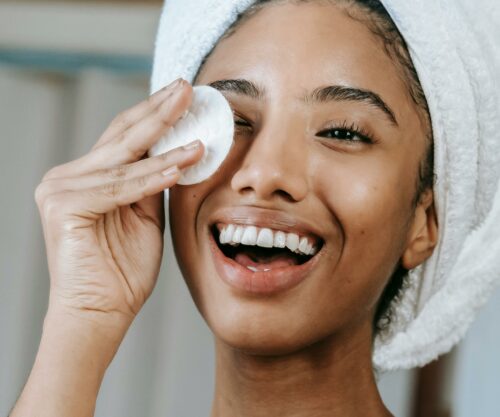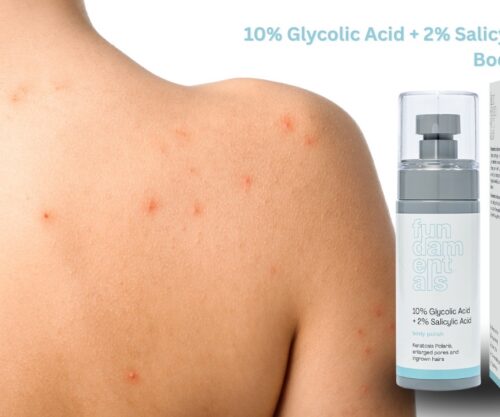
Taking care of your skin is not always easy, it is draining and it is loads of work to keep up with a skincare routine. However, it is essential and necessary.
Everyone has different skin types and can benefit from a daily yet simple skin care routine. According to Medical News Today, Black skin contains more melanin than lighter skin and Melanin-producing cells may be more susceptible to the effects of inflammation and injury, which may be more noticeable in dark skin than in light skin.
Here are some tips on taking care of Black skin according to Medical News Today:
1. Cleanse and moisturise daily
To keep your skin bright and looking flawless, it is best to cleanse and moisturise it daily, ideally right after showering.
Use a gentle cleanser that does not clog the pores. It may be worth looking for one that claims to be “noncomedogenic.”
Massage the cleanser into the skin with clean fingertips, then rinse it off with warm (not hot) water and pat the skin dry with a clean towel.
According to research, black skin loses moisture quicker than some lighter skin tones which can be avoided by preventing the skin from looking ashy or dry, it is best to apply a daily moisturiser that contains humectants, such as glycerin or hyaluronic acid. Humectants retain moisture in the skin.
A highly effective moisturiser is petroleum jelly (Vaseline). However, people should take care when applying thick products such as this to the face, as they may cause acne. Be sure that they are noncomedogenic before applying.
Avoid moisturisers with fragrances, as these can irritate some people’s skin. Moisturisers that include creams or ointments are preferable to lotions.
Do not use a loofah or other similar exfoliating product on the skin. Also, avoid abrasive scrubs.
2. Use Sunscreen
One of the biggest myths about black skin is that it does not burn, and that black people do not need to wear sunscreen. This is false, and everyone should use adequate sun protection.
According to Medical News Today, people with black skin are less likely to get skin cancer from sun exposure, however, black people are more likely to die from the condition if it does develop due to it being more difficult to notice and diagnose.
Being exposed to the sun, it can cause dark spots, such as those typical of melasma, to develop on black skin. It can also make existing spots darker.
American Academy of Dermatology (AAD) recommends using a waterproof sunscreen with a sun protection factor (SPF) of at least 30 that protects against both ultraviolet (UV) A and UVB rays. This is called broad spectrum protection.
It is important for individuals to apply sunscreen all year round to all areas of exposed skin, even on cloudy days, when in the shade, and in the winter season too.
Apply suncream on your face as it is one of the areas which is exposed to the sun all year round and therefore important.
3. Consider treatments for hyperpigmentation
Hyperpigmentation can affect people of all skin tones.
Sunscreen can prevent new patches of hyperpigmentation from developing however, it does not get rid of existing dark spots. It can only prevent existing dark spots from getting darker.
To reduce the appearance of existing dark spots, people can use a specialised product. These typically include ingredients such as:
- Retinoids: Over-the-counter topical and prescription-based products such as tretinoin can be helpful.
- Hydroquinone: Products containing hydroquinone stop the production of excess melanin, which causes dark spots..
- According to Medical News Today, it suggests that vitamin C, an antioxidant, can reduce hyperpigmentation, protect against sun damage, and increase collagen levels. However, vitamin C has a poor ability to penetrate the skin, so more research into its effectiveness for these purposes is necessary.
4. Treat acne early
It is best to treat acne early to help prevent it from getting worse, doing so helps prevent the formation of dark spots on the skin, which is part of a condition called post-inflammatory hyperpigmentation. These spots are not scars.
Creating a gentle daily skin care routine can help stop acne, as can using noncomedogenic, oil-free products.
Try to avoid irritants, such as scented laundry detergent and skin products with heavy perfumes. Make it a norm to visit a dermatologist to learn about the products that may be appropriate for your specific type of acne.
5. Eat a balanced diet
Good skin care starts on the inside. To give skin the nutrients it needs to form and repair itself, eat a healthful diet rich in:
- fruits and vegetables
- whole grains
- lean protein sources, such as fish, eggs, legumes, and tofu
- healthful fats, including nuts, avocado, and olive oil
It is best to avoid sugar-filled foods and limiting alcohol intake may also help improve skin health. Alcohol may make certain skin conditions, such as psoriasis, worse.




